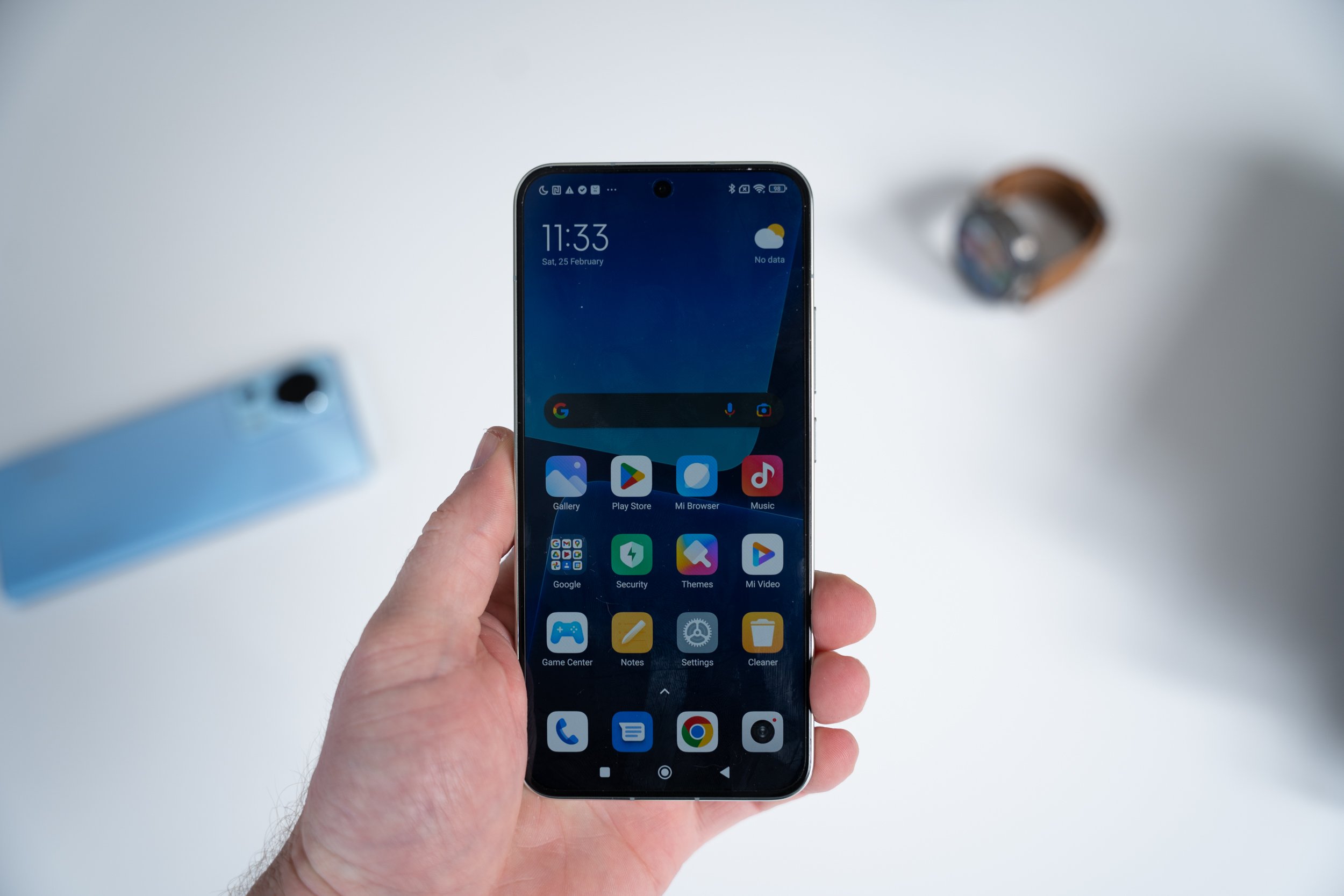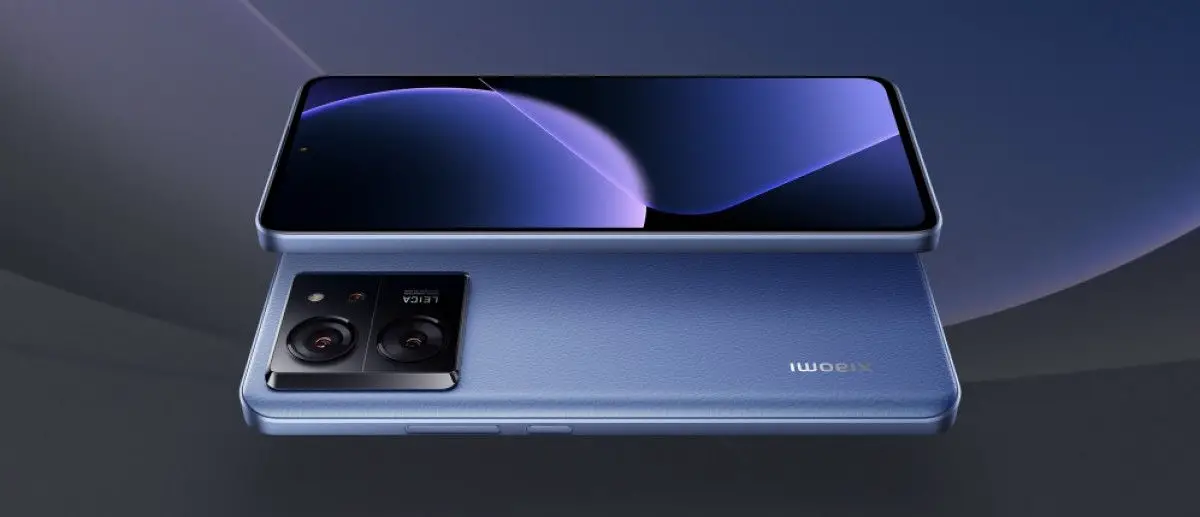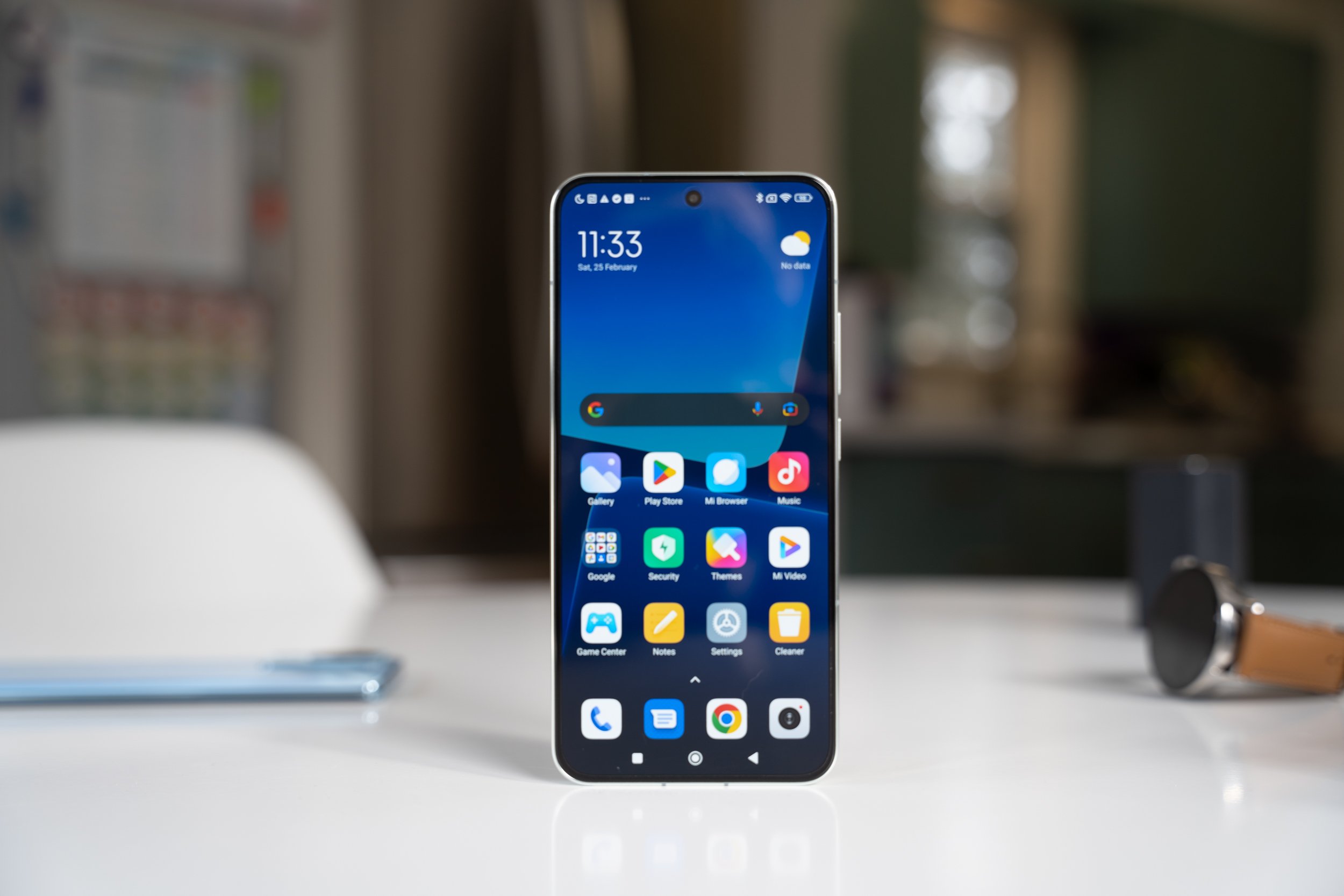
One of the biggest traits of Android is its ability to be customized with additional features and visual effects, which helps manufacturers differentiate their brands from rivals and competitors. As a result, we've gotten different variations of Android such as Samsung's One UI, Oppo's Color OS, and Xiaomi's MIUI, to name a few.
In the case of MIUI, there's been some speculation that Xiaomi might introduce a newer version of its mobile interface, which is expected to come with changes to how users can interact with its smartphones. It looks like this is bound to happen soon, as confirmed by Xiaomi CEO Lei Jun.
Based on a photo shared on Jun's official social media account, Xiaomi will be introducing a new mobile interface dubbed "HyperOS", which will make its debut on the upcoming Xiaomi 14 series smartphones. Jun adds that Hyper OS is the result of "years of collective work." There's no word on whether or not the new interface will make its way to older devices, although it shouldn't come as a surprise if that were the case.
While MIUI was undoubtedly unique in its own way, it wasn't the most efficient Android skin, with users complaining of occasional performance bugs and glitches. With that in mind, we're hoping Hyper OS comes with a ton of improvements (and less bloatware, as well).

Whenever Qualcomm announces their next-gen chipsets, they do it towards the end of the year and the following year is when we start seeing phones that use these chipsets, but that could change this year.
Qualcomm has moved up the date of its Snapdragon Summit to late October, and now if the rumors are to be believed, Xiaomi could be the first smartphone maker to launch a flagship phone that will use Qualcomm's upcoming Snapdragon 8 Gen 3 chipset.
The company is rumored to launch their Xiaomi 14 series on the 27th of October, a day after the Snapdragon Summit, and the launch is said to consist of the base Xiaomi 14 and the more expensive and potentially more powerful and feature-rich Xiaomi 14 Pro. The rumors claim that there might be an "Ultra" variant in the works but that might only launch later.
It is unclear what we can expect from the new phones apart from the use of the Snapdragon 8 Gen 3, but it is rumored to come with a new design but it will still maintain the Leica-branded cameras as part of Xiaomi's ongoing partnership with the legendary German camera maker.
Take this with a grain of salt for now, but if the 27th of October date holds true, we won't have to wait much longer for the official details.

Earlier this year, Xiaomi announced its latest fitness tracker in the form of the Smart Band 8. Now it looks like the company is back with another iteration of the device called the Smart Band 8 Active.
The Smart Band 8 Active will come with a 1.47-inch TFT display with a resolution of 172×320 which can hit a peak brightness of 420 nits. There is also a built-in SpO2 tracker, sleep monitoring, stress manager, and a menstrual health tracker. There are also over 50 fitness modes for users to choose from, along with 5ATM water resistance.
It sounds like a very standard run-of-the-mill fitness tracker and there are more powerful and feature-rich alternatives out there, but we doubt that they will be as attractive as the Smart Band 8 Active in terms of price. The device will be priced at £19.99, which is honestly insanely cheap and perfect for those who want a basic fitness tracker.
The built-in 210mAh battery is also said to last up to 14 days, which compared to some other smartwatches that last for less than a week, this is honestly a pretty good deal and great value for money, so if you're looking for a no-frills fitness tracker, this could be it.

Xiaomi had previously teased that they had some new handsets in the works, and sure enough the company has since announced the new Xiaomi 13T and 13T Pro smartphones, adding to the company's lineup of Android devices.
Now, despite both these phones being part of the 13T series, they do pack quite different hardware. With the base Xiaomi 13T, the handset features the use of MediaTek's Dimensity 8200-Ultra chipset with up to 12GB of RAM and 256GB of storage.

It also comes with a 6.67-inch OLED display with a 144Hz refresh rate, along with a triple camera setup with a 50MP main, a 50MP telephoto, and a 12MP ultrawide with Leica branding. There is also a 5,000mAh battery with support for 67W charging.
As for the Xiaomi 13T Pro, under the hood, this handset will also be powered by a MediaTek chipset but it will be the Dimensity 9200+. It will maintain the same 6.67-inch display with the same 144Hz refresh rate, and will also use the same 50MP main, 50MP telephoto, and 12MP ultrawide camera combo.
Another difference is that the Xiaomi 13T Pro will come with more RAM, up to 16GB of LPDDR5X, and will also be offered in storage configurations of up to 1TB in size. Its battery is also of the 5,000mAh variety, but it will come with support for 120W charging speeds, allowing it to go from 0% up to 100% in a mere 19 minutes.
The Xiaomi 13T will be priced starting at €650, while the Xiaomi 13T Pro will be priced higher starting at €800.

Customarily talking, most Android OEMs normally offer anyplace between 2-3 years of significant operating system refreshes. This fails to measure up to Apple's iPhones where the organization keeps supporting gadgets that were sent off as far back as quite a while back, however that is beginning to change.
More OEMs are currently offering longer update backing, and one of those organizations is Xiaomi. This is as indicated by a declaration on X by Xiaomi's correspondences chief, Daniel Desjarlais, who uncovered that beginning with the Xiaomi 13T series, the organization will offer four years of significant operating system refreshes, trailed by five years of safety patches.
This places Xiaomi in a comparable situation as other Android OEMs, for example, Samsung, who recently declared a comparable change to their update strategy. This is incredible information for clients who don't overhaul their phones each several years, so at any rate, reliable updates to the most recent variant of Android ought to keep things new and invigorating.
That being said, Google is likewise supposed to be changing their arrangement. Last month, it was supposed that Google could clearly be intending to present Pixel clients to five years of updates. Since Google controls the product and presently the equipment with its Tensor chipsets, it seems OK, albeit the organization hasn't formally declared anything yet.
© 2023 YouMobile Inc. All rights reserved






